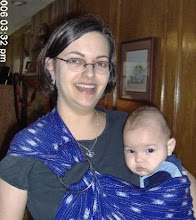"This is a nicely done study which looked at a question that really needed to be answered," added Dr. Ruth Lawrence, a professor of pediatrics at the University of Rochester School of Medicine and a member of the executive committee of the American Academy of Pediatrics' section on breast-feeding. "I think many people's general impression is if you continue to breast-feed beyond a year, probably the nutrient value drops, and this is quite different information and very important."Link: Fat Content of Breast Milk Increases with Time
...
"We showed that the milk of mothers who breast-fed more than a year had a very high fat content," [study co-author Dr. Ronit] Lubetzky said. "That contradicts the claim that breast-feeding at this stage has no nutritional contribution. On the other hand, the long-term effect of such a high-fat intake has not been studied."
"The constituents of fat and human milk are very different than what we provide in formula today. One of the most important constituents of human milk is cholesterol. Formula does not," Lawrence said. "There are many people who think that probably one of the problems with cholesterol today occurs because infants have not had any cholesterol in the first few months of life; perhaps the body doesn't learn to deal with it. There are studies that show that young adults have much lower cholesterol levels if they were breast-fed than if they were bottle-fed."
Wednesday, September 07, 2005
Fat Content of Breast Milk Increases with Time
Researchers have analyzed the fat content of breastmilk from mothers who had been breastfeeding for over a year, and found it to have significantly more fat compared with that of mothers who had been breastfeeding for only two to six months:
Subscribe to:
Post Comments (Atom)






No comments:
Post a Comment